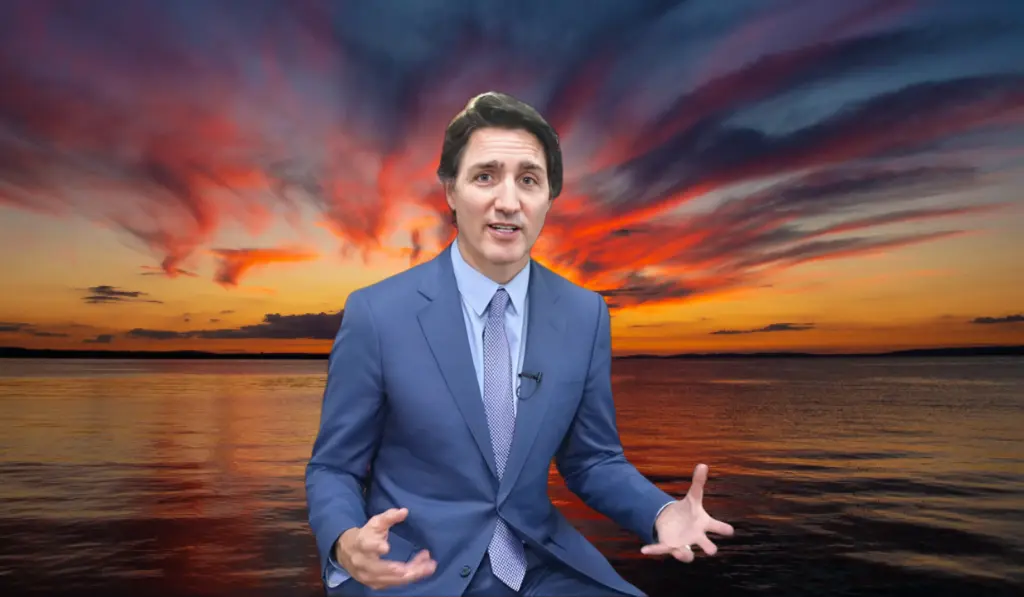Prime Minister Justin Trudeau’s resignation today marks the end of a turbulent chapter in Canadian politics. After nearly a decade of leadership, Trudeau announced he would step down both as the leader of the Liberal Party and as head of government, following mounting internal and external pressures.
In his announcement at Rideau Hall in Ottawa, Trudeau said the decision was born from reflection and family discussions, admitting that the internal battles within his party had rendered him ineffective in his role as leader. “Despite best efforts to work through it, Parliament has been paralyzed for months after what has been the longest session of a minority Parliament in Canadian history,” he said.
With Parliament now prorogued until March 24, Trudeau’s resignation paves the way for a new leadership contest within the Liberal Party, setting the stage for a fresh face to carry the party into the next election.
Trudeau’s Leadership: A Double-Edged Sword
Trudeau’s leadership was always a double-edged sword. On the one hand, he was heralded for his progressive approach to climate change, gender equality, and reconciliation with Indigenous peoples. However, as his government struggled to address pressing domestic issues—particularly the housing crisis, rising crime, open-door immigration policy, and inflation—criticism of Trudeau grew louder.
In his speech, Trudeau leaned heavily on the theme of middle-class Canadians and low-income families, attempting to emphasize the importance of his leadership for the well-being of the nation. “Every bone in my body has always told me to fight because I care deeply about Canadians,” Trudeau stated. However, for many, these words felt increasingly hollow in light of the challenges facing ordinary Canadians.
Critics argue that under Trudeau’s watch, the country failed to adequately address the growing inequality between the rich and the middle class. While Canada remains one of the wealthiest nations in the world, many Canadians continue to face significant financial strain. The fact that a country with so many opportunities still sees a burgeoning middle class and struggling low-income families has raised questions about the effectiveness of Trudeau’s economic policies. The government’s inability to tackle the basic issues has led many to feel trapped in a cycle of economic instability. Instead of creating job opportunities and reducing inequality, critics argue that the policies have done little to improve the financial situation of those who need it most.
The Housing Crisis
The housing crisis has been one of the most contentious issues under his leadership. Home prices have soared to unprecedented levels, leaving many Canadians unable to afford to buy a home. The lack of affordable housing has become a symbol of the broader economic inequality that has plagued Trudeau’s time in office. Critics argue that his government’s response to the crisis has been inadequate and overly focused on band-aid solutions.
While his government did introduce measures to help first-time homebuyers, critics argue the measures did little to address the systemic problems within the housing market, including speculative real estate activity and insufficient supply. With little progress made in solving the housing affordability crisis, the frustration among Canadians is palpable.
Rising Crime and Immigration Pressures
Beyond the economic challenges, crime has also become a key issue. Violent crime rates have surged in some Canadian cities, and gun violence has become a growing concern. Critics argue that Trudeau’s lenient policies toward crime have allowed criminal behavior to flourish, leaving many communities vulnerable.
Opposition politicians have been vocal in their criticism, pointing to the statistics: violent crime has risen by 50%, gun crime by 116%, and hate crimes by a staggering 250%. “Under Trudeau, Canada has spiraled out of control,” said Pierre Poilievre. “We have seen unprecedented increases in violent crime and gun violence, and this government has done little to address it.”
Immigration, too, has been a flashpoint for Trudeau. The federal government’s open stance on immigration, while praised by some, has led to strain on public services and infrastructure. Critics argue that the lack of adequate planning to accommodate growing numbers of immigrants has overwhelmed certain regions, further exacerbating the pressures on housing and public services.
The Path Forward: A New Liberal Leader?
With Trudeau stepping aside, Canada now faces a period of uncertainty. The Liberal Party will soon begin the search for a new leader. The leadership race will allow the party to reset and reframe its policies by the next election. However, it also raises the question of whether the party can recover from the deep fractures that have emerged under Trudeau’s leadership.
In his resignation speech, Trudeau emphasized the need for a new face to lead the party into the next election. “The Liberal Party of Canada is an important institution in the history of our country,” he said. “A new prime minister and leader of the Liberal Party will carry its values and ideals into the next election.” But with his legacy under scrutiny, the next leader will have to contend with the deep dissatisfaction many Canadians feel toward the current government.
Looking Ahead
As Trudeau exits the political stage, the nation is left to reflect on his leadership. For some, he will be remembered for his progressive policies and efforts to position Canada as a leader on the global stage. But for others, his tenure will be marked by frustration over unfulfilled promises, rising costs, and growing divisions within Canadian society.
With Canada’s federal debt exceeding $1.3 trillion, the next government faces a significant challenge in addressing the financial health. As Canadians, it is now our responsibility to pay off this growing debt, while also working to reestablish the kind and polite culture that has defined us. We must embrace empathy, unity, and mutual understanding. No matter our political affiliation—be it Liberal or Conservative—we must not allow the views of extremist members to divide us. We are one country, and we will remain one. It is time to focus on what unites us and work together for a prosperous future for all Canadians.

